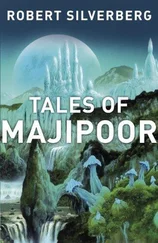Robert Silverberg - Born with the Dead
Здесь есть возможность читать онлайн «Robert Silverberg - Born with the Dead» весь текст электронной книги совершенно бесплатно (целиком полную версию без сокращений). В некоторых случаях можно слушать аудио, скачать через торрент в формате fb2 и присутствует краткое содержание. Год выпуска: 2009, ISBN: 2009, Издательство: Subterranean Press, Жанр: Фантастика и фэнтези, на английском языке. Описание произведения, (предисловие) а так же отзывы посетителей доступны на портале библиотеки ЛибКат.
- Название:Born with the Dead
- Автор:
- Издательство:Subterranean Press
- Жанр:
- Год:2009
- ISBN:978-1-59606-212-2
- Рейтинг книги:5 / 5. Голосов: 1
-
Избранное:Добавить в избранное
- Отзывы:
-
Ваша оценка:
- 100
- 1
- 2
- 3
- 4
- 5
Born with the Dead: краткое содержание, описание и аннотация
Предлагаем к чтению аннотацию, описание, краткое содержание или предисловие (зависит от того, что написал сам автор книги «Born with the Dead»). Если вы не нашли необходимую информацию о книге — напишите в комментариях, мы постараемся отыскать её.
Born with the Dead — читать онлайн бесплатно полную книгу (весь текст) целиком
Ниже представлен текст книги, разбитый по страницам. Система сохранения места последней прочитанной страницы, позволяет с удобством читать онлайн бесплатно книгу «Born with the Dead», без необходимости каждый раз заново искать на чём Вы остановились. Поставьте закладку, и сможете в любой момент перейти на страницу, на которой закончили чтение.
Интервал:
Закладка:
—The Jews, too. Don’t forget the Jews.
—All right, Sybille, the Jews. With their little tribal jokes, their special holidays, their own mysterious language, yes, a good case in point.
—So I’ve joined a new tribe. What’s wrong with that?
—Did you need to be part of a tribe?
—What did I have before? The tribe of Californians? The tribe of academics?
—The tribe of Jorge and Sybille Klein.
—Too narrow. Anyway, I’ve been expelled from that tribe. I needed to join another one.
—Expelled?
—By death. After that there’s no going back.
—You could go back. Any time.
—Oh, no, no, no, Jorge, I can’t; I can’t, I’m not Sybille Klein any more, I never will be again. How can I explain it to you? There’s no way. Death brings on changes. Die and see, Jorge. Die and see.
Nerita said, “She’s waiting for you in the lounge.”
It was a big, coldly furnished room at the far end of the other wing of the house of strangers. Sybille stood by a window through which pale, chilly morning light was streaming. Mortimer was with her, and also Kent Zacharias. The two men favored Klein with mysterious oblique smiles—courteous or derisive, he could not tell which. “Do you like our town?” Zacharias asked. “Have you been seeing the sights?” Klein chose not to reply. He acknowledged the question with a faint nod and turned to Sybille. Strangely, he felt altogether calm at this moment of attaining a years-old desire: he felt nothing at all in her presence, no panic, no yearning, no dismay, no nostalgia, nothing, nothing. As though he were truly a dead. He knew it was the tranquility of utter terror.
“We’ll leave you two alone,” Zacharias said. “You must have so much to tell each other.” He went out, with Nerita and Mortimer. Klein’s eyes met Sybille’s and lingered there. She was looking at him coolly, in a kind of impersonal appraisal. That damnable smile of hers, Klein thought: dying turns them all into Mona Lisas.
She said, “Do you plan to stay here long?”
“Probably not. A few days, maybe a week.” He moistened his lips. “How have you been, Sybille? How has it been going?”
“It’s all been about as I expected.”
What do you mean by that? Can you give me some details? Are you at all disappointed? Have there been any surprises? What has it been like for you, Sybille? Oh, Jesus—
—Never ask a direct question—
He said, “I wish you had let me visit with you in Zanzibar.”
“That wasn’t possible. Let’s not talk about it now.” She dismissed the episode with a casual wave. After a moment she said, “Would you like to hear a fascinating story I’ve uncovered about the early days of Omani influence in Zanzibar?”
The impersonality of the question startled him. How could she display such absolute lack of curiosity about his presence in Zion Cold Town, his claim to be a dead, his reasons for wanting to see her? How could she plunge so quickly, so coldly, into a discussion of archaic political events in Zanzibar?
“I suppose so,” he said weakly.
“It’s a sort of Arabian Nights story, really. It’s the story of how Ahmad the Sly overthrew Abdullah ibn Muhammad Alawi.”
The names were strange to him. He had indeed taken some small part in her historical researches, but it was years since he had worked with her, and everything had drifted about in his mind, leaving a jumbled residue of Ahmads and Hasans and Abdullahs. “I’m sorry,” he said. “I don’t recall who they were.”
Unperturbed, Sybille said, “Certainly you remember that in the eighteenth and early nineteenth centuries the chief power in the Indian Ocean was the Arab state of Oman, ruled from Muscat on the Persian Gulf. Under the Busaidi dynasty, founded in 1744 by Ahmad ibn Said al-Busaidi, the Omani extended their power to East Africa. The logical capital for their African empire was the port of Mombasa, but they were unable to evict a rival dynasty reigning there, so the Busaidi looked toward nearby Zanzibar—a cosmopolitan island of mixed Arab, Indian, and African population. Zanzibar’s strategic placement on the coast and its spacious and well-protected harbor made it an ideal base for the East African slave trade that the Busaidi of Oman intended to dominate.”
“It comes back to me now, I think.”
“Very well. The founder of the Omani Sultanate of Zanzibar was Ahmad ibn Majid the Sly, who came to the throne of Oman in 1811—do you remember?—upon the death of his uncle Abd-er-Rahman al-Busatdi.”
“The names sound familiar,” Klein said doubtfully.
“Seven years later,” Sybille continued, “seeking to conquer Zanzibar without the use of force, Ahmad the Sly shaved his beard and mustache and visited the island disguised as a soothsayer, wearing yellow robes and a costly emerald in his turban. At that time most of Zanzibar was governed by a native ruler of mixed Arab and African blood, Abdullah ibn Muhammad Alawi, whose hereditary title was Mwenyi Mkuu. The Mwenyi Mkuu’s subjects were mainly Africans, members of a tribe called the Hadimu. Sultan Ahmad, arriving in Zanzibar Town, gave a demonstration of his soothsaying skills on the waterfront and attracted so much attention that he speedily gained an audience at the court of the Mwenyi Mkuu. Ahmad predicted a glowing future for Abdullah, declaring that a powerful prince famed throughout the world would come to Zanzibar, make the Mwenyi Mkuu his high lieutenant, and confirm him and his descendants as lords of Zanzibar forever.
“‘How do you know these things?’ asked the Mwenyi Mkuu.
“‘There is a potion I drink,’ Sultan Ahmad replied, ‘that enables me to see what is to come. Do you wish to taste of it?’
“‘Most surely I do,’ Abdullah said, and Ahmad thereupon gave him a drug that sent him into rapturous transports and showed him visions of paradise. Looking down from his place near the footstool of Allah, the Mwenyi Mkuu saw a rich and happy Zanzibar governed by his children’s children’s children. For hours he wandered in fantasies of almighty power.
“Ahmad then departed, and let his beard and mustache grow again, and returned to Zanzibar ten weeks later in his full regalia as Sultan of Oman, at the head of an imposing and powerful armada. He went at once to the court of the Mwenyi Mkuu and proposed, just as the soothsayer had prophesied, that Oman and Zanzibar enter into a treaty of alliance under which Oman would assume responsibility for much of Zanzibar’s external relations—including the slave trade—while guaranteeing the authority of the Mwenyi Mkuu over domestic affairs. In return for his partial abdication of authority, the Mwenyi Mkuu would receive financial compensation from Oman. Remembering the vision the soothsayer had revealed to him, Abdullah at once signed the treaty, thereby legitimizing what was, in effect, the Omani conquest of Zanzibar. A great feast was held to celebrate the treaty, and, as a mark of honor, the Mwenyi Mkuu offered Sultan Ahmad a rare drug used locally, known as borqash, or ‘the flower of truth.’ Ahmad only pretended to put the pipe to his lips, for he loathed all mind-altering drugs, but Abdullah, as the flower of truth possessed him, looked at Ahmad and recognized the outlines of the soothsayer’s face behind the Sultan’s new beard. Realizing that he had been deceived, the Mwenyi Mkuu thrust his dagger, the tip of which was poisoned, deep into the Sultan’s side and fled the banquet hall, taking up residence on the neighboring island of Pemba. Ahmad ibn Majid survived, but the poison consumed his vital organs and the remaining ten years of his life were spent in constant agony. As for the Mwenyi Mkuu, the Sultan’s men hunted him down and put him to death along with ninety members of his family, and native rule in Zanzibar was therewith extinguished.”
Читать дальшеИнтервал:
Закладка:
Похожие книги на «Born with the Dead»
Представляем Вашему вниманию похожие книги на «Born with the Dead» списком для выбора. Мы отобрали схожую по названию и смыслу литературу в надежде предоставить читателям больше вариантов отыскать новые, интересные, ещё непрочитанные произведения.
Обсуждение, отзывы о книге «Born with the Dead» и просто собственные мнения читателей. Оставьте ваши комментарии, напишите, что Вы думаете о произведении, его смысле или главных героях. Укажите что конкретно понравилось, а что нет, и почему Вы так считаете.












